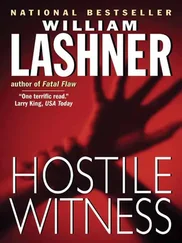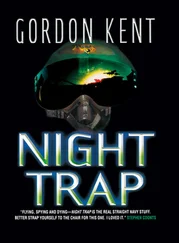Now, she came into the room, trying, he knew, to mute her own joy at feeling good about herself and her life, going down to Pax River to fly every day, preparing to get her heart’s desire by going to Houston.
She kissed him lightly on the top of the head and went into the kitchen, and seconds later she was back.
“You know—” and she kept her voice light, “—you could have done something about dinner.”
“Because I don’t do anything but sit here on my ass all day? Right!” He shot up and headed for the kitchen. Upstairs, the baby started to cry. “And shut that kid up!” he shouted.
It was as if he hated her, too. As if hurting her, the thing he valued most in the world, was the only way to express his rage. She wouldn’t have it, however; she had a ferocious temper of her own, and she could be sweet Rose, forgiving Rose, good-wife Rose for only so long. Grabbing his arm from behind, she spun him halfway around and shouted, just as loudly as he had, “That’s your kid up there! If you don’t like him or me or us, get the hell out!”
“I might do just that!”
“Well, do it! We’re all sick of tiptoeing around so you can feel sorry for yourself and stare at your wounded hand and think how bad the Navy’s treated you. Get a grip or get out! ”
And he raised his hand.
Washington.
Mike Dukas came out of his shower, his heavy, hairy body pink except for the livid red scars along his collarbone. Seeing it in the bathroom mirror, he made a face—the first bullet he had ever taken, and it had been a doozy. He still couldn’t lift his hands above his shoulders, and drying himself made him wince, and when he went out into the world he still had to wear a plastic harness that held his hands up in front of him so that he looked like the Easter bunny.
“Fucking George Shreed,” he muttered.
George Shreed dominated his life now: he had taken the bullet capturing Shreed, and now he was paying for it in the paperwork that waited at his office—reports and explanations and assessments. “The thanks of a grateful nation,” he said aloud and thought, Well, at least I don’t feel as bad as Al Craik. Craik, he knew, was in a deep depression.
He needed a change, Dukas thought. God knows, he needed something.
Time was, he would have thought he needed to fall in love. He fell in love easily, hard, usually badly. This time, however, he didn’t have the urge, as if scraping death’s fender had warned him off the risk. Even now, there was a call on his answering machine that he had started to listen to last night and had switched off because he had recognized the woman’s voice. “Hi, Mike,” she had said, the voice a little breathy and too bright. “Hi, this is—” and he had turned it off because he knew who it was.
Sally Baranowski. CIA analyst, incipient alcoholic just out of rehab, nice, nice woman. They had almost had something going, and then he had got himself shot and she had got herself rehabilitated, and now, what the hell, what good was any of it? Half-dry, his back still covered with water, he wrapped the wet towel around his gut and stalked out of the bathroom as if he meant to punch somebody out, went to the answering machine and stabbed it with a stiff finger and said to himself, Don’t be a shmuck.
“Hi, Mike. Hi, this is Sally!” A small laugh. “Baranowski. Remember me? Uh—I just thought I’d call—This is awkward as hell; I thought you’d be there. Goddam machines, you can’t—”
He switched it off. She must be just out of rehab. How long did rehab take, anyway? Thirty days? He didn’t want to get involved, was the truth. What he wanted was real work, a case, relief from the mindnumbing reports that filled his days. So far, his boss at the Naval Criminal Investigative Service wouldn’t give him a thing; he’d been going into the office for a week, pounding out paperwork, kept out of action. Because he was “awaiting a clean bill of health,” his boss said, which had nothing to do with his health and everything to do with the fact that he’d gone into a foreign country (Pakistan) without a country clearance and without adequate authorization, his boss said, and got himself shot up and had needed to be flown out by a Navy aircraft that was also there illegally. And, what the hell, the fact that they’d caught a major spy seemed to make no difference. And now Kasser, his boss’s boss, wanted to know where the Chinese case officer was. Dukas could see himself spending the rest of his life writing reports related to his trip to Pakistan.
So, Dukas had said, let me go back to the War Crimes Tribunal, from which he was supposedly on six months’ leave of absence as a favor to NCIS, but his boss had negatived that as “dodging the issue,” whatever the issue was.
“Shit,” Dukas said.
And his telephone rang.
“Dukas,” he growled into it in his early-morning voice.
“It’s Alan.”
“Hey, man!” Dukas sounded to himself like a jerk—happy-happy, oh boy, life is great! Trying to cheer Al Craik up because he sounded like shit. “How’s it going, Al?”
“Get me something to do, Mike. Anything!”
“That’s a job for your detailer, Al.”
“My detailer can’t do anything; I’m on medical leave and some genius at Walter Reade wants to disability-discharge me. I’m going nuts, Mike.”
“Yeah, well—you sleeping?”
“Sleeping—what’s that? No, I’m not sleeping. I fought with Rose, I shouted at my kid—” His voice got hoarse. “Mike—I’ll do anything to get my mind off myself. Scut work, I don’t care.”
This was Dukas’s best friend. They had almost died together. They had been wounded together. Dukas’s own helplessness made him somber. “I’m doing scut work myself, kid. Writing reports on what happened in Pakistan, closing the Shreed file.” He sighed. On the other end, Craik made a sound as if he was being wounded all over again, and Dukas, relenting, said, “Come down to the office, what the hell. We can talk, anyway. Okay? Hey, you talk to Harry lately?”
Alan Craik was slow to answer. He muttered, “I don’t like begging, Mike. But I’m going nuts. Last night, I—Rose and I had a fight, and I—almost—” He didn’t say what he had done. He didn’t have to; the tone of his voice said it all.
Then Alan snapped back from wherever he was. Mike heard the change.
“What about Harry?”
“Tell you later.”
In the Virginia Horse Country.
A dark Ford Explorer turned into a gap in a wooden fence where a paved drive led away from the two-lane road. There was a line of oaks and more wooden fence along the lane, and up ahead a Colonial Revival house that needed paint. The wooden fence wanted attention, too, and the pasture beyond it was scraggy with tufts of long grass, and a horseman would have known that no animals were being pastured there.
The Explorer pulled up next to the house and a tall man got out. He waved at somebody by the stable block and trotted up the front steps, nodded at the hefty young man at the front door and said, “Everything okay?”
“Bor-ing,” the young man said. “He’s upstairs.”
“I’ll talk to him in the music room.” Balkowitz always talked to Ray Suter in the music room, which had no music but did hold an out-of-tune baby grand that had been pushed against a wall to make room for recording equipment. Balkowitz was a lawyer for the Central Intelligence Agency; the bulky young man was named Hurley and worked for Agency security; the man out at the stable block was a local who took care of the place but wasn’t allowed in the house. And Ray Suter, the man upstairs, had been George Shreed’s assistant and was wanted by various people for murder, conspiracy to commit a felony, espionage, and perhaps corrupting the morals of a minor. The CIA, however, had him stashed away here, and what they wanted him for was information.
Читать дальше












